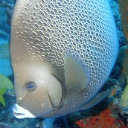- Home
- /
- Programming
- /
- ODS Reports
- /
- Re: proc report - help with multiple variables in column headings
- RSS Feed
- Mark Topic as New
- Mark Topic as Read
- Float this Topic for Current User
- Bookmark
- Subscribe
- Mute
- Printer Friendly Page
- Mark as New
- Bookmark
- Subscribe
- Mute
- RSS Feed
- Permalink
- Report Inappropriate Content
SAS Folks-
I need your help again - I'm stuck in PROC REPORT. We're using 9.4M2 on a 64-bit Windows server, remote login from 64-bit PC.
I have to make a report for laboratory data that has analysis variables (3 variables, text and numeric) going down the page (generally 20-30 rows), and samples across the page (at least one, can be many). Each sample has two columns, a result value (numeric) and a remark (text). Each set of two columns has three identifiers I need to stack: a laboratory id (text), a name (text) and a date (SAS datetime).
Using dataset CARS to demonstrate, I'll use Cylinders to stand in for my analysis variables going down, Model to stand in for my laboratory IDs, and Horsepower and Origin to stand in for my data, then generate the text and date to stack with Model. The three 'stacking' items will always correspond exactly.
The code below makes the report, and I show the result for make=Isuzu in the first picture.
I've been fiddling with the code, and can't seem to figure out the correct combination of how to define stack_date and stack_date, and put them into the column statement correctly to get the second report.
Thanks for any help you can give me!
WendyT
data cars ; set sashelp.cars (keep=make model cylinders horsepower origin) ;
length stack_text $ 2 ;
if make in('Isuzu', 'Jeep', 'Land Rover') ;
stack_text=substr(model,2) ;
stack_date= "&sysdate9."D + _N_ ;
label stack_text= "Text Stack variable" ;
label stack_date= "Date Stack variable" ;
format stack_date DATE9. ;
run ;
options nobyline ;
%let outdir=&temp_output. ;
systask command "del ""&OUTDIR.\*.* "" ";
%let base=Cars_report ;
ods _all_ close ;
ods trace on ;
ODS html
path="&OUTDIR\" (URL=NONE)
body="body_&BASE..html" (TITLE="&BASE._OUTPUT")
contents="contents_&BASE..html"
frame="frame_&BASE..html" ;
title "Title one text by #BYVAL(MAKE) " ;
title2 "Report run on &sysdate9. " ;
proc report data=cars list ;
by make ;
column cylinders model,(horsepower origin) ;
define cylinders / group ID;
define model / across ;
* DEFINE STACK_TEXT / ??? ;
* DEFINE STACK_DATE / ??? ;
define model/across ;
define horsepower / group missing;
define origin / group missing ;
run ;
ods html close ;
run ;
Accepted Solutions
- Mark as New
- Bookmark
- Subscribe
- Mute
- RSS Feed
- Permalink
- Report Inappropriate Content
Try add two dummy variables and use NOZERO option.
data cars ; set sashelp.cars (keep=make model cylinders horsepower origin) ;
length stack_text $ 2 ;
if make in('Isuzu', 'Jeep', 'Land Rover') ;
stack_text=substr(model,2) ;
stack_date= "&sysdate9."D + _N_ ;
label stack_text= "Text Stack variable" ;
label stack_date= "Date Stack variable" ;
format stack_date DATE9. ;
if stack_text=:'As' then do;x='As';y='9-Nov-16';end;
else if stack_text=:'Ro' then do;x='Ro';y='10-Nov-16';end;
run ;
options nobyline ;
proc report data=cars list nowd ;
by make ;
column cylinders x,y,model,(horsepower origin) ;
define cylinders / group ID;
define x/ across 'Sample' nozero;
define y/ across '' nozero;
define model / across '' ;
* DEFINE STACK_TEXT / ??? ;
* DEFINE STACK_DATE / ??? ;
define horsepower / group missing;
define origin / group missing ;
run ;- Mark as New
- Bookmark
- Subscribe
- Mute
- RSS Feed
- Permalink
- Report Inappropriate Content
Try add two dummy variables and use NOZERO option.
data cars ; set sashelp.cars (keep=make model cylinders horsepower origin) ;
length stack_text $ 2 ;
if make in('Isuzu', 'Jeep', 'Land Rover') ;
stack_text=substr(model,2) ;
stack_date= "&sysdate9."D + _N_ ;
label stack_text= "Text Stack variable" ;
label stack_date= "Date Stack variable" ;
format stack_date DATE9. ;
if stack_text=:'As' then do;x='As';y='9-Nov-16';end;
else if stack_text=:'Ro' then do;x='Ro';y='10-Nov-16';end;
run ;
options nobyline ;
proc report data=cars list nowd ;
by make ;
column cylinders x,y,model,(horsepower origin) ;
define cylinders / group ID;
define x/ across 'Sample' nozero;
define y/ across '' nozero;
define model / across '' ;
* DEFINE STACK_TEXT / ??? ;
* DEFINE STACK_DATE / ??? ;
define horsepower / group missing;
define origin / group missing ;
run ;- Mark as New
- Bookmark
- Subscribe
- Mute
- RSS Feed
- Permalink
- Report Inappropriate Content
Thank you so much Ksharp!
You've saved me yet again. 🙂
Wendy
April 27 – 30 | Gaylord Texan | Grapevine, Texas
Registration is open
Walk in ready to learn. Walk out ready to deliver. This is the data and AI conference you can't afford to miss.
Register now and lock in 2025 pricing—just $495!
Learn how use the CAT functions in SAS to join values from multiple variables into a single value.
Find more tutorials on the SAS Users YouTube channel.
SAS Training: Just a Click Away
Ready to level-up your skills? Choose your own adventure.





